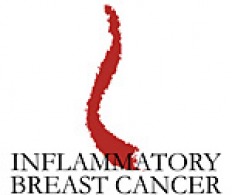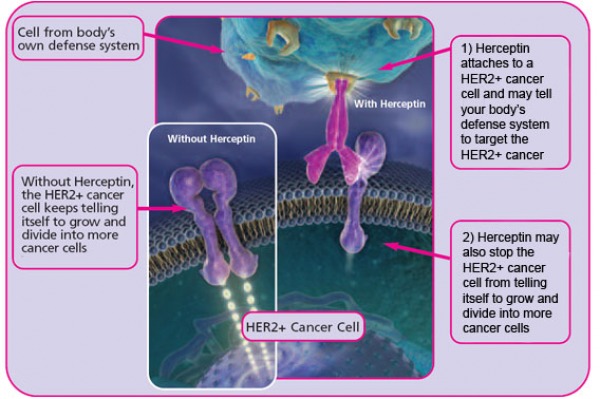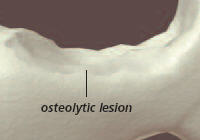Information on Inflammatory breast cancer. No, you do not have to have a lump to have breast cancer. Remember these words, they could save your life!!!!!

I just wanted to do my part to get information out to women everywhere about this rarely known, but aggressive and deadly form of breast cancer. I myself would have not known about this disease if I hadn't searched the internet trying to figure out what was wrong with me. So, i hope that some day, someone will read this, and it will help them or a family member. Knowledge is power. Power over your life, your treatment, and our future.
Common symptoms of inflammatory breast cancer are:
Inflammatory Breast Cancer (IBC) is an especially aggressive form of breast cancer that does not always start with a lump. Symptoms often include the following:
A warm swollen breast that may appear as mastitis but doesn't respond to antibiotics
Skin which is red or appears dimpled like an orange (peau d'orange)
Other possible signs of IBC include:
The sudden appearance of a large lump in the breast
Itching or pain in the breast
A nipple which is flattened or inverted,, thickening and changing colors.
Swollen lymph nodes under the arm or above the collarbone
My symptoms were as follows:
The itching was the first symptom I had. My darned breast itched so badly, and I tried so many different creams, and nothing relieved the itching. I then noticed that I had a few lumps in my breast. I was pregnant at the time so my OB assumed that they were just cystic changes. Then I had the red swollen breast. It grew larger and larger. Then the color changed to a mottled purple color. The skin grew thicker, around a baseball sized mass that grew in my breast. My nipple inverted and changed from pink to a pale yellow. And fyi, I had been to a couple of doctors and ultrasounds, and I was told that my breast was "normal breast tissue". If you are worried about having inflammatory breast cancer, you have to be persistant until the cause for your symptoms is uncovered.
Because it took more than a year for me to be diagnosed, by the time I was diagnosed the cancer had spread beyond the breast tissue. It had invaded my right shoulder and joints and bone there, my ribs, my back, my sternum, a small spot on my lung, my hip joint, my pelvic bone, my femur, my cranium. Pretty unfortunate. I wish that it would have been found sooner. So, now I am stage 4 breast cancer (and there is no stage 5....) Treatable, but not curable, and usually, eventually fatal.
So, take care of yourself, your wives, your daughters, your sisters, your cousins, your friends. Don't be afraid to talk to them about things that are worrying you. I didn't tell ANYONE about my worries or concerns, Not even my husband. FOR A YEAR!!!! Don't do this. Take care of yourself!!!!
Lots of good info about IBC on this website http://www.ibcsupport.org/

Do you want to learn more about Inflammatory Breast Cancer?Here are some good sites with information.

Zometa and Herceptin- more info on the treatments I am currently on

Related Links
Download Your Herceptin Therapy - How It Works and What to Expect -->
Herceptin is designed to target HER2+ cancer cells. Based on laboratory studies, Herceptin is thought to work in 2 ways to stop the HER2+ cancer cell from growing.
1) Herceptin attaches to a HER2+ cancer cell and may tell your body’s defense system to target the HER2+ cancer cell
2) Herceptin may also stop the HER2+ cancer cell from telling itself to grow and divide into more cancer cells
Herceptin is a type of targeted cancer therapy known as a monoclonal antibody (sometimes called targeted biologic therapy). Antibodies are part of the body's normal defense against bacteria, viruses, and abnormal cells, such as cancer cells. Monoclonal antibodies are produced in a laboratory by making multiple copies of a single cell. Monoclonal antibodies are designed to recognize a specific protein on certain cells and signal the body's immune system to destroy the cell.
Monoclonal antibodies are generally a more targeted therapy than chemotherapy.
Herceptin is given by IV in single weekly doses or by triple dose every 3 weeks. Both have shown equal efficacy in trials. It mostly matter of preference for the Doctor and the patient.
Visit this link to find out more about how cancer spreads to the bones and what happens to the bones before, and then after with Zometa.
http://www.us.zometa.com/info/cancer_bones/breast_cancer.jsp

What You Should Know about
Breast Cancer and Your Bones
In solid tumors‚ such as breast cancer‚ there is the chance that the cancer will become advanced and spread to the bone. In advanced breast cancer‚ metastasis to the bone occurs in 65%-75% of patients. While this can be frightening‚ it may help you to understand how bone metastasis damages bones‚ the symptoms it may cause‚ as well as diagnosis procedures and treatment.
Bone metastases wear away portions of bone‚ leaving small holes called osteolytic bone lesions. This wearing away process causes eroded bone to appear as circular‚ punched out areas. It leaves bones weak and fragile.
Bone metastases can also cause abnormal bone formation. Areas of new bone form‚ but they are weak and unstable and can break easily or collapse. These areas are called osteoblastic bone lesions.
Symptoms of Bone Metastases
Bone pain is usually the earliest symptom of bone metastases. Sometimes‚ a fracture is the first sign of bone damage.
Bone fractures–As cancer weakens the bones‚ the risk of fractures increases. The ribs and spine are the most common sites of fractures. Long bone fractures are usually the most disabling.
Spinal cord compression–Cancer on your spine—or backbone—can put pressure on the spinal cord and cause intense back pain. Damage to the nerves in the spinal cord can eventually cause paralysis and changes in bladder and bowel functions.
Hypercalcemia–When bones release calcium into the bloodstream in amounts that are dangerous‚ hypercalcemia is the result. This condition may occur with bone metastases due to excessive bone loss. Symptoms of hypercalcemia include nausea‚ vomiting‚ heart palpitations‚ loss of appetite‚ depression‚ and fatigue
Diagnosis of Bone Metastases
Several procedures may be used to detect bone metastases. A bone scan—often the first method of checking for bone metastases—may be followed by other testing‚ including x-rays‚ magnetic resonance imaging (MRI) or position emission tomography (PET) scans.
Treatment for Patients with Bone Metastases
ZOMETA is a treatment for patients with breast cancer that has spread to the bones. It may reduce or delay bone fractures or pressure on the spinal cord that can result from bone damage from advanced breast cancer. ZOMETA can also help patients who already have experienced bone complications. ZOMETA is not chemotherapy and may be used with other cancer treatments‚ such as radiation‚ hormonal therapy‚ or chemotherapy.
ZOMETA is a convenient 15-30 minute infusion given every 3 to 4 weeks by IV in a doctor’s office or at a clinic.
Another site with good info http://www.ibchelp.org/

